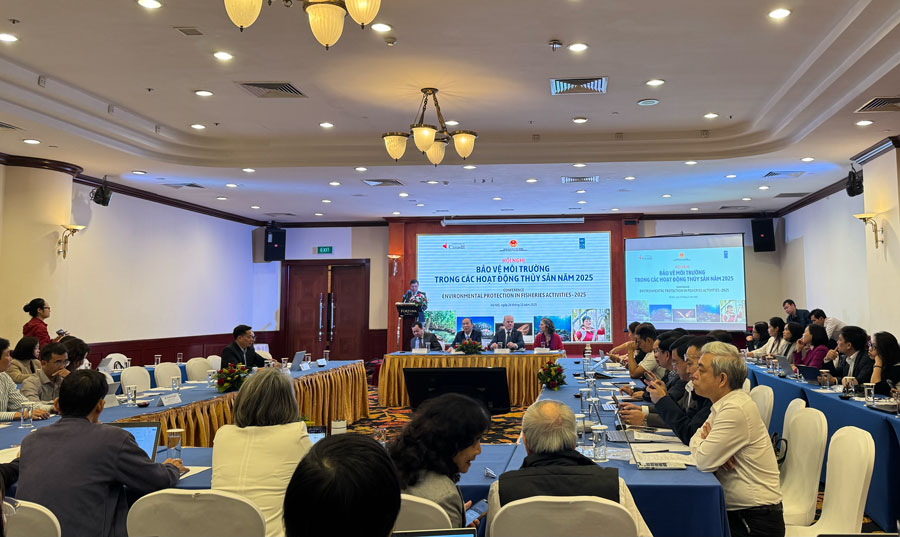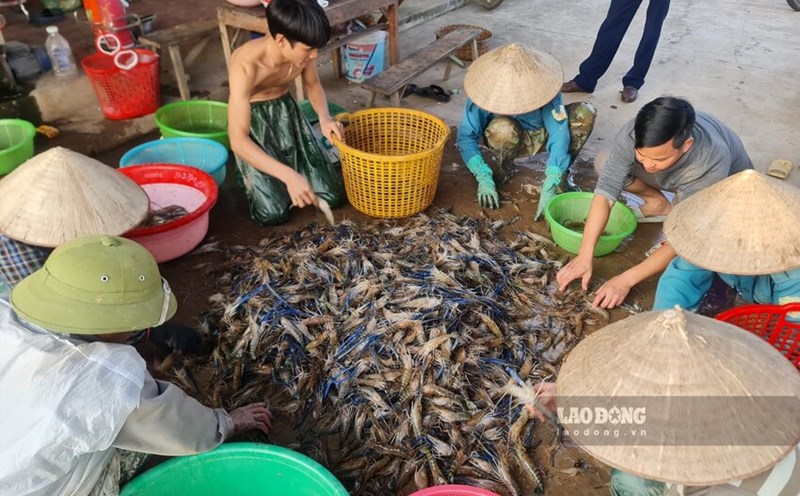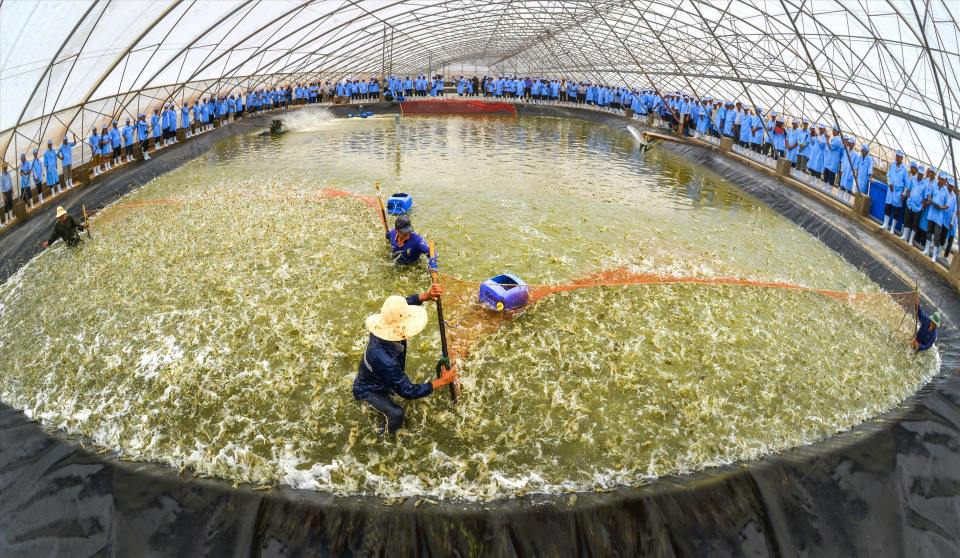The conference on environmental protection in aquatic activities in 2025 organized by the Department of Fisheries and Fisheries Control (Ministry of Agriculture and Environment) in coordination with the United Nations Development Program (UNDP) and the Embassy of Canada in Vietnam took place with the participation of many international agencies, ministries, localities and the business community.
The conference aims to review 3 years (2022-2025) of implementing the Plan to implement Decision 911/QD-TTg on environmental protection in aquaculture activities for the period 2021-2030, and discuss orientations and solutions for the period 2026-2030.

Speaking at the opening of the conference, Deputy Minister Phung Duc Tien affirmed that sustainable, responsible and environmentally friendly seafood development is an inevitable trend in the process of integrating Vietnam's seafood industry into the international community; in line with Vietnam's commitments in addressing serious global challenges of climate change, environment and degradation of natural ecosystems, towards the goal of "green" development.
Strengthening waste control, technological innovation, digital transformation... along with mobilizing the participation of the whole society will create an important foundation to form quality, high-value Vietnamese seafood products at reasonable costs, both bringing economic efficiency and not causing damage to the environment and natural ecosystem.
Canadian Ambassador Extraordinary and Plenipotentiary to Vietnam Jim Nickel emphasized: Caring for the ocean is also caring for our future. Canada is proud to stand side by side with Vietnam in protecting the ocean and supporting communities dependent on the ocean. A healthy ocean is the foundation for a strong livelihood and a sustainable green marine economy, ensuring that future generations inherit a rich marine ecosystem and prosperous coastal communities".
According to the representative of the Department of Fisheries and Fisheries Control, after 3 years of implementation, many local models have proven creative approaches in controlling pollution, protecting the environment, and reducing waste in the fisheries sector.
The Department has also co-organized seminars on promoting the circular economy: circular economic model, roadmap for reducing emissions in seafood production; waste treatment technology, seafood byproducts, energy saving; public-private cooperation plan. The goal is to promote public-private cooperation - circular economy, reduce emissions in seafood processing, protect the environment in seafood processing, promote circular economy in the production chain from aquaculture to seafood processing.
Along with that, ministries and branches such as the Ministry of Science and Technology, the Ministry of Public Security, associations, institutes, non-governmental organizations and enterprises have accompanied in many activities of environmental monitoring, fishermen's propaganda, innovation of production technology and improvement of management mechanisms.
The conference is an important activity within the framework of the Smart Coastal Community for Climate Change Adaptation (VN-CSCC) project funded by the Government of Canada through the United Nations Development Program (UNDP) for the period 20242030.


The project aims to improve resilience to climate change in vulnerable coastal communities by enhancing the capacity for integrated climate information planning, supporting nature-based adaptation solutions, restoring and conserving mangrove forests, and enriching marine and coastal biodiversity.
At the same time, the project contributes to reducing plastic waste pollution in aquaculture activities and promoting community-based environmental governance.
These results directly contribute to the goals of Project 911, Decision 687, and at the same time support Vietnam to move closer to international commitments on biodiversity protection, maintaining natural ecosystems, sustainable fisheries development, improving livelihoods for coastal communities and enhancing climate change adaptation.











